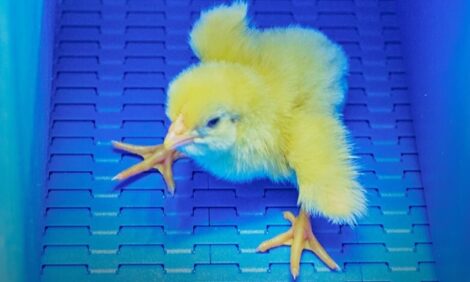



Expert report sets out path to living with avian influenza risk
Document summarises current situation and details how to manage threat of outbreaksResearch priorities to help manage and prevent avian influenza are highlighted in a report by an expert from the Global Academy of Agriculture and Food Systems.
The report, ‘Living with the risk of bird flu’, documents existing evidence on the disease, identifies knowledge gaps, and sets out how the UK poultry industry can learn to live with the risk of outbreaks.
The report has been developed to help commercial poultry and game bird producers, small-scale poultry keepers and other bird owners achieve a better understanding of:
- The likely impact on poultry production of Avian Influenza (AI) in terms of productivity, product quality, efficiency and carbon footprint
- Ways to minimise the effects of AI on UK poultry production systems with reference to preventing and controlling outbreaks and mitigating impacts
- Mitigation strategies for fully housed production systems versus free-range systems
- Actions the sector could take to reduce the impact of AI
The publication was commissioned by CIEL (Centre of Innovation Excellence in Livestock) and authored by Professor Lisa Boden and her team at the Global Academy of Agriculture and Food Systems.
"The latest outbreak of bird flu has been severe and prolonged, and it is imperative that we understand how best to manage the threat of infection and ensure the industry has the best up-to-date knowledge to work with. I hope this report will support effective communication and best practice throughout the poultry industry in mitigating the disease," said professor Lisa Boden, Global Academy of Agriculture and Food Systems.
The report acknowledges the far-reaching negative impacts avian influenza can have on animal and human health, as well as the potential consequences on international trade, food security and the environment.
"Research into production systems, vaccine development, advances in genomic sequencing, and new technologies to support rapid detection could all help manage this disease. Government support will continue to be required and enhanced to ensure that all outbreaks are handled promptly and competently," said Phil Bicknell, Director of CIEL.
Managing disease
The report offers a summary of the UK’s current avian influenza situation, while raising awareness of how poultry keepers can make a difference in managing the disease, such as minimising contact with wild birds and keeping feed and water out of reach of wild birds and rodents.
The authors emphasise the importance of vigilance and early detection of the disease, such as checking for signs of an outbreak, such as lethargy, poor appetite and closed and runny eyes – and notifying vets of any concerns. They also highlight the importance of disease control policies being adaptable to new scientific evidence, alongside the need for trusted links between science, industry and policy to help improve the speed of decision-making and subsequent actions.
"For future containment of the disease, strict biosecurity is needed on all types of holding, and vigilance and early detection of the disease has to be a shared responsibility for poultry producers irrespective of holding size or production system," said Dr. Mark Young, Head of Innovation at CIEL.
Click here to download and read the full report.








